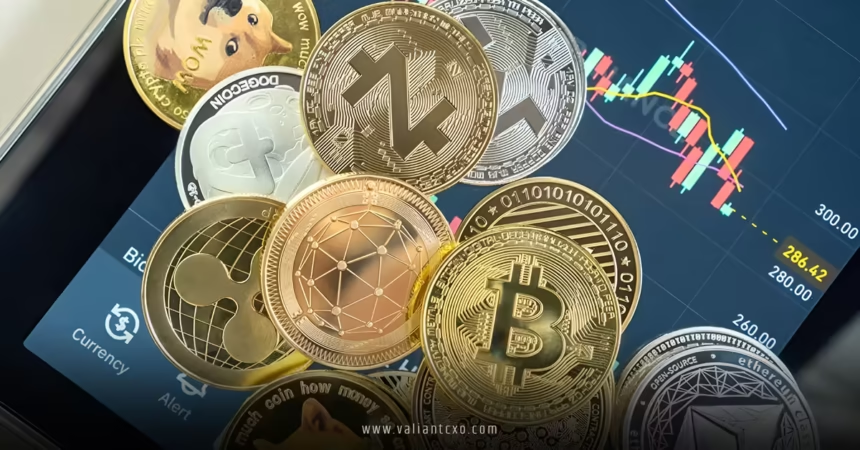Digital Dollar vs Cryptocurrency: What U.S. Consumers Should Know is a topic buzzing with intrigue as the world of finance evolves at breakneck speed. Imagine standing at a crossroads: one path leads to a government-backed digital dollar, promising stability and oversight, while the other winds through the wild, decentralized jungle of cryptocurrencies. Which one’s right for you? As a U.S. consumer, you’re likely wondering how these two financial innovations stack up, what they mean for your wallet, and how they’ll shape the future. Let’s dive into this head-to-head comparison, unravel the complexities, and arm you with the knowledge to navigate this digital frontier.
What Is a Digital Dollar, Anyway?
Picture a dollar bill, but instead of crisp paper, it’s a string of code living in a digital wallet. A digital dollar, often called a Central Bank Digital Currency (CBDC), is a digital form of the U.S. dollar issued and backed by the Federal Reserve. Unlike physical cash, it exists entirely online, designed to streamline transactions, reduce costs, and keep the government’s stamp of approval.
Why does this matter? Digital Dollar vs Cryptocurrency: What U.S. Consumers Should Know highlights a key distinction: a digital dollar is centralized, meaning it’s controlled by the Fed, ensuring stability but also oversight. It’s like a digital version of the cash in your pocket, tied to the same value and trust as traditional money. The Fed’s exploring this concept to modernize payments, especially in a world where cash is fading, and digital transactions are king.
How Would a Digital Dollar Work?
A digital dollar would likely live in a secure digital wallet, accessible via your phone or computer. You could use it for everyday purchases, from coffee to car payments, with transactions processed instantly on a government-managed blockchain or similar technology. Think of it as Venmo, but backed by Uncle Sam.
The benefits? Faster payments, lower fees for businesses, and broader access for those without bank accounts. But there’s a catch: the government could track every transaction, raising privacy concerns. Digital Dollar vs Cryptocurrency: What U.S. Consumers Should Know emphasizes this trade-off—control versus freedom.
Cryptocurrency: The Rebel of the Financial World
Now, let’s switch gears to cryptocurrencies. Imagine a bustling marketplace with no central authority, where Bitcoin, Ethereum, and thousands of other digital coins trade freely. Cryptocurrencies are decentralized digital assets, powered by blockchain technology—a public ledger that records every transaction across a network of computers.
Unlike a digital dollar, cryptocurrencies aren’t tied to any government or bank. They’re the Wild West of finance, offering freedom but also volatility. Digital Dollar vs Cryptocurrency: What U.S. Consumers Should Know is about understanding this contrast: cryptocurrencies thrive on independence, but that comes with risks like price swings and regulatory uncertainty.
Why Do People Love Crypto?
Crypto’s appeal lies in its freedom. Want to send money across the globe without a bank’s permission? Crypto’s got you. Interested in investing in a currency that could skyrocket (or crash)? That’s crypto, too. It’s like betting on a racehorse—thrilling, but not for the faint of heart.
Plus, blockchain’s transparency means you can verify transactions yourself, no middleman needed. For U.S. consumers, this autonomy is tempting, especially if you’re skeptical of centralized systems. But with great freedom comes great responsibility—crypto scams, hacks, and lost wallets are real risks.
Digital Dollar vs Cryptocurrency: What U.S. Consumers Should Know About Key Differences
Let’s break it down. The digital dollar and cryptocurrencies might seem like cousins, but they’re more like distant relatives with opposing personalities. Here’s a closer look at how they differ:
1. Control and Centralization
A digital dollar is like a tightly run ship, with the Federal Reserve as the captain. Every transaction is monitored, ensuring stability but limiting privacy. Cryptocurrencies, on the other hand, are like a fleet of pirate ships—decentralized, with no single authority in charge. This gives users more control but also exposes them to market chaos.
2. Value Stability
Ever checked Bitcoin’s price and felt your heart race? Cryptocurrencies are notorious for their volatility—one day you’re up, the next you’re down. A digital dollar, pegged to the U.S. dollar, promises stability. If you’re wondering, Digital Dollar vs Cryptocurrency: What U.S. Consumers Should Know, this is a biggie: a digital dollar’s value won’t keep you up at night, but crypto might.
3. Privacy Concerns
With a digital dollar, the government could see every transaction—think of it as a financial diary open to scrutiny. Cryptocurrencies offer more anonymity, though not complete privacy (sorry, Bitcoin isn’t as secret as you might think). For consumers prioritizing privacy, this distinction is crucial.
4. Accessibility and Inclusion
A digital dollar could be a game-changer for the unbanked—people without access to traditional banking. The Fed aims to make it widely available, potentially bridging financial gaps. Crypto, while accessible to anyone with an internet connection, requires tech know-how and carries risks that might deter beginners.
The Benefits of a Digital Dollar for U.S. Consumers
Why should you care about a digital dollar? For starters, it could make life easier. Imagine paying for groceries with a tap, no fees, no delays. Businesses could save billions on transaction costs, potentially lowering prices. Plus, a digital dollar could reach rural areas or underserved communities, offering a lifeline to those left out of the banking system.
Digital Dollar vs Cryptocurrency: What U.S. Consumers Should Know also points to security. A digital dollar, backed by the Fed, is less likely to vanish in a hack or scam. It’s like keeping your money in a fortified vault versus a lockbox under your bed.
Potential Drawbacks
But it’s not all rosy. Government oversight means less privacy—every purchase could be tracked, raising Big Brother concerns. Plus, a digital dollar might not offer the investment potential of crypto. If you’re dreaming of 10x returns, a digital dollar won’t get you there.
Why Cryptocurrency Appeals to U.S. Consumers
Cryptocurrencies are the rockstars of finance—flashy, risky, and full of potential. They offer a chance to break free from traditional banking, invest in cutting-edge tech, or even support innovative projects through tokens. For tech-savvy consumers, crypto’s decentralized nature is a breath of fresh air.
Digital Dollar vs Cryptocurrency: What U.S. Consumers Should Know underscores crypto’s global reach. Need to send money to a friend in another country? Crypto can do it in minutes, often cheaper than a bank transfer. Plus, the blockchain’s transparency builds trust without needing a middleman.
The Risks of Going Crypto
But crypto isn’t all glitz. Volatility can wipe out savings, scams are rampant, and regulations are a gray area. Losing your private key? Kiss your funds goodbye. For every crypto success story, there’s a cautionary tale. U.S. consumers need to weigh these risks carefully.
How Might a Digital Dollar Impact Cryptocurrencies?
If the U.S. launches a digital dollar, what happens to crypto? It’s like a new kid moving into the neighborhood—things could get competitive. A digital dollar might draw users away from stablecoins (cryptocurrencies pegged to the dollar), as it offers similar stability with government backing.
But crypto’s die-hard fans aren’t going anywhere. Bitcoin and Ethereum thrive on their independence, and many users value that over a centralized alternative. Digital Dollar vs Cryptocurrency: What U.S. Consumers Should Know suggests a future where both coexist—crypto for the rebels, digital dollars for the cautious.
What’s the Future Hold?
The financial world is at a tipping point. The Federal Reserve is studying CBDCs, with reports indicating a potential launch in the coming years. Meanwhile, cryptocurrencies continue to grow, with Bitcoin’s market cap soaring past $1 trillion at times. For U.S. consumers, the choice isn’t binary—you might use a digital dollar for daily purchases and crypto for investments or international transfers.
Digital Dollar vs Cryptocurrency: What U.S. Consumers Should Know is about preparing for this hybrid future. Will you embrace the stability of a digital dollar or the freedom of crypto? Maybe both. The key is staying informed and ready to adapt.
Practical Tips for U.S. Consumers
So, what can you do now? Here’s a quick guide:
- Research the Digital Dollar: Check out resources like the Federal Reserve’s CBDC page to understand its progress.
- Learn About Crypto: Start with established coins like Bitcoin or Ethereum, but be cautious—only invest what you can afford to lose.
- Protect Your Privacy: If privacy matters, explore crypto wallets with strong security or wait for clarity on digital dollar tracking.
- Stay Updated: Financial tech moves fast. Follow trusted sources to keep up with Digital Dollar vs Cryptocurrency: What U.S. Consumers Should Know.
Conclusion
Digital Dollar vs Cryptocurrency: What U.S. Consumers Should Know is more than a buzzword—it’s a window into the future of money. A digital dollar offers stability, accessibility, and government backing, making it a safe bet for everyday use. Cryptocurrencies, with their decentralized allure, promise freedom and potential rewards, but they come with risks that demand caution. As a U.S. consumer, you’re in the driver’s seat—armed with knowledge, you can decide which path suits your needs. Stay curious, stay informed, and get ready to navigate this exciting financial frontier.
FAQs
1. What is the main difference between a digital dollar and cryptocurrency?
Digital Dollar vs Cryptocurrency: What U.S. Consumers Should Know boils down to control. A digital dollar is centralized, issued by the Federal Reserve, while cryptocurrencies are decentralized, running on blockchain without a single authority.
2. Is a digital dollar safer than cryptocurrency?
A digital dollar, backed by the government, offers stability and lower risk of loss from hacks. Cryptocurrencies, while secure in their design, are volatile and vulnerable to scams, so caution is key.
3. Can I use both a digital dollar and cryptocurrency?
Absolutely! Digital Dollar vs Cryptocurrency: What U.S. Consumers Should Know suggests they can complement each other—use a digital dollar for daily transactions and crypto for investments or global transfers.
4. Will a digital dollar replace cryptocurrencies?
Unlikely. A digital dollar might compete with stablecoins, but cryptocurrencies like Bitcoin thrive on their independence, appealing to those who value decentralization.
5. How can I stay informed about Digital Dollar vs Cryptocurrency: What U.S. Consumers Should Know?
Follow trusted financial news, check Federal Reserve updates, and explore crypto platforms like CoinMarketCap to stay ahead of the curve.
For More Updates !! : valiantcxo.com


